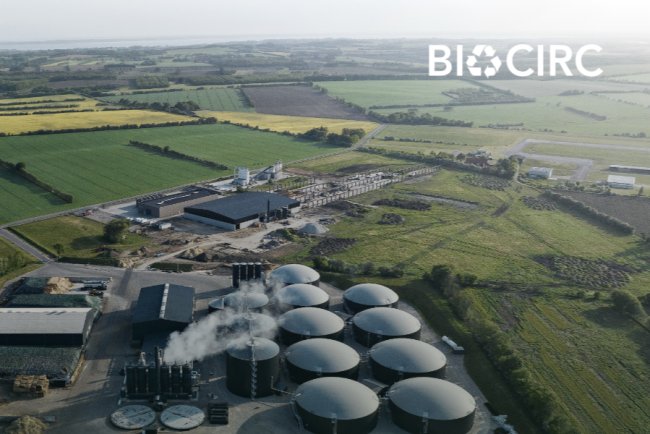FTC Ends Truckmakers Probe Amid Carb Dispute
FTC closes probe into truckmakers after they drop CARB deal, as legal fight over emissions rules heats up in California

The U.S. Federal Trade Commission (FTC) has closed its investigation into major truck and engine manufacturers, including Volvo Group, Daimler Truck, International Motors, and PACCAR. This investigation focused on concerns related to an agreement with the California Air Resources Board (CARB) intended to cut greenhouse gas emissions in the heavy-duty trucking industry. The companies provided written assurances that they would not enforce the terms of the “Clean Truck Partnership,” a 2023 agreement with CARB that aimed to match industry practices with the state’s strict zero-emission truck regulations.
The Clean Truck Partnership was signed in July 2023 by the manufacturers and CARB after the introduction of a series of tough environmental rules, including the Advanced Clean Trucks Regulations (ACT), Advanced Clean Fleets Regulations (ACF), and the Heavy-Duty Engine and Vehicle Omnibus Regulations. These rules required manufacturers to sell a specific percentage of zero-emission trucks and set stricter emissions standards for internal combustion engine vehicles. To protect its regulations from being overridden by federal law under the Clean Air Act, CARB sought waivers from the U.S. Environmental Protection Agency (EPA). However, in June 2025, President Donald Trump signed legislation that revoked these waivers, resulting in a regulatory conflict between state and federal authorities.
Under the Clean Truck Partnership, manufacturers agreed to meet California's zero-emission truck sales targets, even if the state’s regulatory power faced legal challenges. In return, CARB promised to give reasonable lead times for compliance and support developing infrastructure for zero-emission vehicles. This setup aimed to provide regulatory clarity to the industry while helping achieve the state’s climate goals.
The FTC viewed the agreement with skepticism, as the participating companies control up to 99% of the U.S. heavy-duty truck market. The investigation focused on potential antitrust violations, specifically the risk that the partnership could hinder competition, lower truck supply, and raise prices. The FTC stated that the agreement essentially capped sales of certain truck types and collectively imposed emissions limits, practices that could be seen as restricting output—something that antitrust law looks upon unfavorably.
In its statement, the FTC stressed that agreements among competitors to cut output or stop competing are opposed to U.S. competition law, regardless of whether they occur under a government program. Taylor C. Hoogendoorn, Deputy Director of the FTC’s Bureau of Competition, criticized CARB’s regulatory actions as overreach and a major threat to American trucking. Hoogendoorn added that the Commission’s intervention would ensure the Clean Truck Partnership is out of the picture and would prevent similar agreements in the future.
While the antitrust investigation has been closed, tensions between the manufacturers, California, and the federal government remain high. The truckmakers have filed a joint lawsuit against CARB and California Governor Gavin Newsom, seeking to stop the enforcement of the state’s heavy-duty truck emissions standards. The companies argue that the state’s rules are now void under federal law due to the revocation of CARB’s EPA waivers. They claim they are facing conflicting and unresolvable demands from two regulatory bodies. According to the lawsuit, the companies are “subject to two sovereigns whose regulatory requirements are irreconcilable and who are openly hostile to one another.”
A spokesperson for Volvo Group expressed these concerns, stating that the industry is stuck between conflicting federal and California regulations. The lawsuit aims to clarify legal obligations under both state and federal law. The spokesperson also highlighted the need to prevent California from enforcing regulatory programs that federal laws have preempted.
This legal dispute reflects a broader national conflict over environmental regulations and the extent of state power to impose tougher standards than those set federally. California has historically led the way in adopting strong climate policies, often using its authority under the Clean Air Act to create stricter vehicle emissions standards. The recent revocation of CARB’s waivers by the Trump administration marks a significant change in the balance of power, escalating disputes between the state and the federal government.
For now, the FTC’s decision to close its investigation provides temporary relief to the manufacturers from antitrust concerns, but it does not resolve the ongoing regulatory uncertainty in the heavy-duty trucking industry. The lawsuit against California could have significant consequences, not just for truck and engine makers but also for the future of state-led environmental initiatives in areas where federal authority is strong. Until the courts resolve the issue, the companies must navigate a divided regulatory environment while continuing to adjust to the broader shift toward zero-emission transportation technologies.
What's Your Reaction?

















